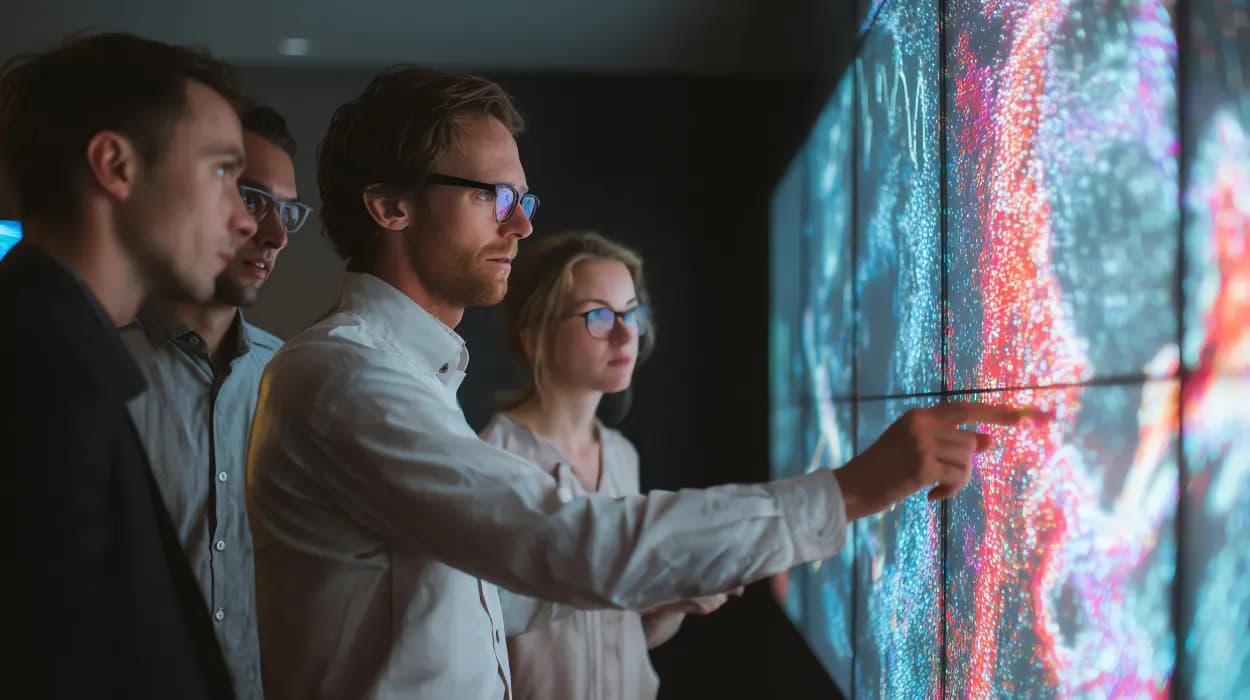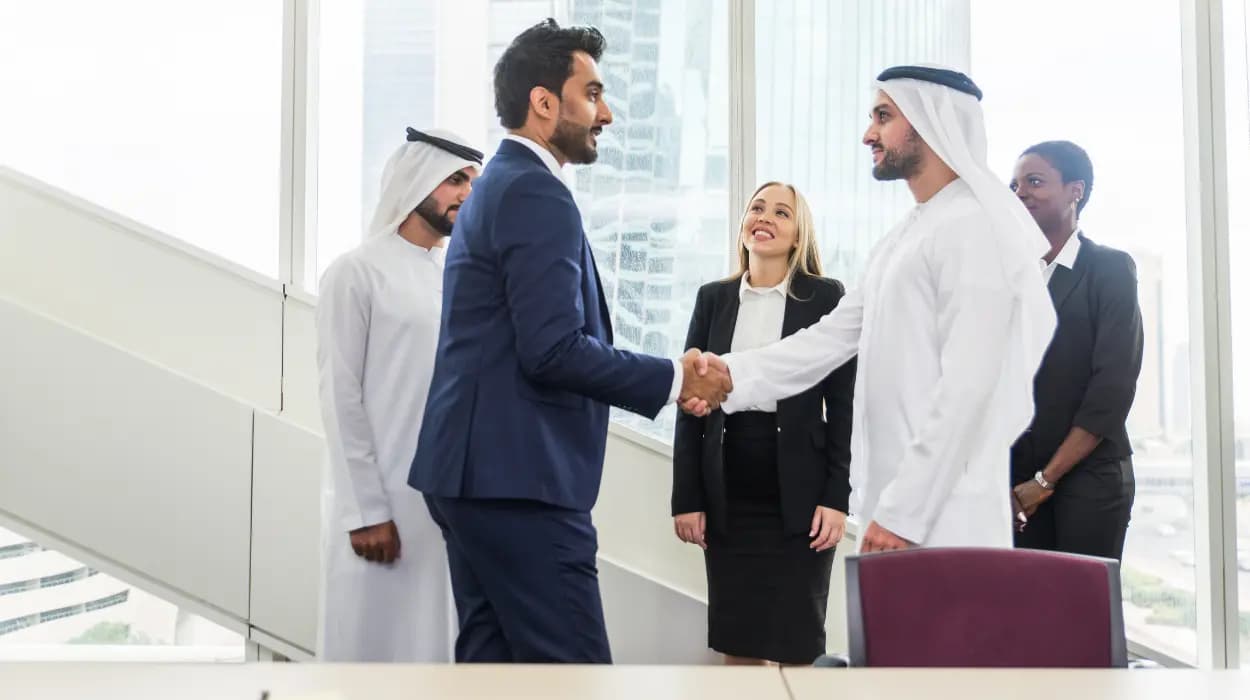
Success today no longer belongs to those with the largest resources or the newest technology—it belongs to those who can manage crises with intelligence and agility. Crises are no longer exceptions; they have become a part of the daily reality for institutions and nations. Yet, only a few global models have succeeded in transforming crises into platforms for growth—foremost among them is Dubai’s model, which has offered the world practical lessons in leadership, innovation, and institutional resilience.
From this foundation, The Dubai Premier Training Centre has adopted the philosophy of the “Dubai Model” to build leaders’ and managers’ capabilities through specialized workshops and training courses. These programs help organizations prepare for crises, manage them effectively, and transform them into opportunities for growth and excellence.
Definition of Crisis Management and Its Importance
Crisis management is the ability to anticipate risks before they occur, deal with them when they happen, and turn them into opportunities for learning and improvement afterward.
In a rapidly changing environment—such as the Gulf region, influenced by climate change, fluctuating oil prices, and health and economic crises—crisis management has become a strategic necessity.
However, Dubai never treated crises as “temporary disasters” but as tests of readiness and leadership. Over the past three decades, Dubai has built an integrated crisis management system combining foresight, innovation, and flexible leadership.
The Dubai Model in Crisis Management
1. Proactive Planning and Smart Risk Analysis
Dubai’s approach does not wait for a crisis to act; it relies on proactive planning and intelligent risk assessment. While many nations depend on reactions, Dubai developed comprehensive monitoring and forecasting systems for potential crises—economic, environmental, or technological.
2. Long-Term Strategic Vision
Dubai launched long-term frameworks such as Dubai Vision 2030 and Dubai Agenda 2040, focusing not just on development but also on readiness for future disruptions—covering climate risks, food security, digital transformation, and natural disaster management.
3. Flexible and Human-Centered Leadership
During the COVID-19 pandemic, Dubai demonstrated a leadership model that balanced strict measures with human compassion—implementing strong health regulations while launching humanitarian initiatives like “10 Million Meals” to support affected families.
4. Digital Transformation as a Core Pillar
One of Dubai’s greatest strengths in crisis management has been its early adoption of digital transformation. By digitizing all government services, operations continued smoothly even during full lockdowns—proving that digital transformation is a strategic necessity, not a luxury.
How Dubai Turned Crises into Growth Opportunities
1. COVID-19 Crisis (2020–2021)
While many global cities halted, Dubai invested in strengthening its digital infrastructure, expanding the Smart Dubai Initiative, promoting remote work and education, and enhancing the AI-powered healthcare system.
2. Global Financial Crisis (2008)
When global markets faltered, Dubai launched financial and economic reforms, such as creating the Dubai International Financial Centre (DIFC), which transformed the city into a regional financial hub within years.
3. Environmental and Climate Challenges
Amid rising temperatures and energy demand, Dubai led renewable energy initiatives, most notably the Mohammed bin Rashid Al Maktoum Solar Park, one of the world’s largest solar projects—turning environmental crises into sustainability opportunities.
Leadership Lessons from the Dubai Model
-
Proactive Preparedness: Managing potential crises before they happen.
-
Institutional Flexibility: Adjusting direction quickly without losing focus.
-
Innovation as a Lifeline: Launching new initiatives amid challenges.
-
Transparent Leadership: Maintaining trust through open communication.
-
Continuous Learning: Analyzing each crisis to improve readiness.
Core Principles of the Dubai Crisis Management Model
-
Smart Risk Analysis – using data and AI.
-
Collaborative Leadership – across public and private sectors.
-
Human-Centered Focus – valuing people as the first defense line.
-
Governance and Transparency – ensuring clarity and swift action.
-
Continuous Education – building capable, crisis-ready professionals.
The Dubai Premier Training Centre’s Methodology
Inspired by Dubai’s global example, The Dubai Premier Training Centre offers advanced crisis management programs designed for the 21st century.
Its training combines real-world simulation, scenario-based learning, and case studies drawn from Dubai’s experience.
Featured Courses and Workshops
-
Adaptive Leadership in Crises: Rapid decision-making under pressure.
-
Scenario Planning Program: Building foresight and flexible strategies.
-
Corporate Communication & Reputation Management in Crises: Handling media and public perception wisely.
-
Digital Transformation in Crisis Management: Using technology for institutional resilience.
-
Innovation in Challenging Times: Turning crises into growth opportunities.
Case Study: Dubai’s Aviation Crisis (2020)
When global air traffic stopped, Dubai was among the first to reopen its skies safely.
It introduced global travel safety protocols, and Emirates Airlines pioneered digital health document systems.
This potential disaster became a launchpad for digital aviation innovation, earning Dubai international recognition for rapid recovery.
Applying the Dubai Model in Your Organization
To apply Dubai’s approach to crisis management:
-
Build Crisis Awareness: Educate teams on potential crises and smart decision-making.
-
Develop a Dynamic Emergency Plan: Constantly update based on lessons learned.
-
Invest in Practical Training: Join hands-on programs offered by The Dubai Premier Training Centre to strengthen crisis preparedness.
The Human Dimension of Dubai’s Model
While technology and systems are vital, people remain at the heart of crisis management.
Dubai’s guiding principle—“Human First”—ensures every decision prioritizes human well-being and trust between leadership and society.
Ultimately, Dubai’s crisis management model is not a temporary response but a comprehensive institutional culture built on innovation, humanity, and continuous readiness.
It proves that crises are not the end—but the beginning of progress.
Through The Dubai Premier Training Centre, organizations and individuals can now learn to apply this inspiring model and develop the leadership and technical skills needed for effective crisis management.
Read Related Articles





